- Home
- Susan Fleet
Natalie's Dilemma: a Frank Renzi crime thriller (Frank Renzi novels Book 7) Page 8
Natalie's Dilemma: a Frank Renzi crime thriller (Frank Renzi novels Book 7) Read online
Page 8
His assistant entered the office and approached the desk. Jason was five-two, four inches shorter than Clint. His liquid brown eyes were hidden behind thick glasses, but he was the best computer hacker the agency had, able to crack the most deviously encrypted files.
“Where is she?” Clint snapped.
“Well, sir, I've got good news and bad news.”
He ground his teeth, sending shooting pains down his jaw. “Don't fuck with me, Jason. Where is she?”
“I can't tell you where she is now. I can only tell you where she was two months ago.”
“Damn it to hell! You said you found her!”
“I did, sir. I spent all my free hours working with the face-recognition program. We've got the most advanced face-recognition software in town.”
Jason had explained it to him in excruciating detail. The software reduced human faces to 600 tiny measurements: the distance between the pupils of the eyes, the width of the nose at seven points, more measurements for lips, even more for the ears, every crease, curve and earlobe like a fingerprint. A database held three million faces from all over the world, convicted criminals, spies, immigrants, legal and illegal, tens of thousands of protesters chanting slogans. Jason almost got a hard-on, explaining this to him.
“I know that. Tell me what you found!”
“The first week in October she was in a train station in Venice, Italy. But I can't guarantee she's still there. Venice might have been a stopover.”
“So? Keep using the software and find her.” Given the CIA's interest in criminals world-wide, they had cameras in key airports and train stations across the globe.
“Yes, sir, but—”
“But what!!” His acne-scarred cheeks grew hot, reddening in a flush.
“I'm checking every major airport and train station in Europe, but if she rented a car, she might be holed up in a small city. Where we don't have cameras.” Jason gazed at him, his eyes magnified by the thick lenses. “And then there's the bad news.”
He ground his teeth, sending another painful jolt down his jaw. He didn't want to hear about bad news. He wanted results!
“What?”
“Someone else accessed the facial recognition file.”
“Who?”
“I don't know.”
“Find out!! Call me immediately if you spot the Brixton bitch!”
Jason bolted out of the office like a cat with a Rottweiler on its tail.
He took a deep breath to calm himself, set his laptop on the desk and opened it. Natalie Brixton had been in Venice two months ago. Jason thought she might have gone somewhere else, but he didn't believe it.
He'd go there and find the bitch. But he needed a reason to get his boss fly him to Venice. Budgets were tight these days.
He did a computer search: Organized Crime + Venice, Italy. The Mafia still ruled in Italy.
He got a zillion hits. Perfect. His boss had a hard-on for these Mafia motherfuckers.
Two days from now he'd be in Venice, hunting for the bitch who'd murdered Oliver. If she wasn't there, he'd track her down.
He knew how to make people talk.
What was she doing now, he wondered. Six hours ahead in Venice, almost three in the afternoon. Maybe she was sitting in an outdoor cafe, eating gelato, enjoying a nice sunny day.
She'd better enjoy it. Her days were numbered.
CHAPTER 10
3:00 PM – Venice
Steeling herself, Natalie rang the doorbell and faked a smile. Her face muscles felt stiff and her stomach was churning like a blender. Catarina seemed eager to hire her, but the 'Netti brothers might not be. If you cross these men, they will kill you. Valenti's warning.
This was a high-stakes gamble, one she couldn't afford to lose. If she didn't convince them to hire her, Conti would ship her back to the States to face four murder charges, and Frank Renzi.
Catarina opened the door and beamed her a big smile. “Hello, Laura, please come in.”
“Thank you,” she murmured, and followed her into a small, sparsely furnished living room. The window blinds were closed but two table lamps gave the room a cheery glow. A man rose from a three-cushion sofa facing a television set. Catarina beckoned him closer.
“Laura, this is my husband, Tomasso. Tommy, say hello to Laura.”
He was three inches taller than she was, five-ten and darkly handsome in the classic Italian mold, dressed in well-tailored slacks and a white shirt open at the throat. Visible in the V were several gold chains and a thick mat of dark hair. Like many Europeans he wore his wedding band on his right hand. Like many gangsters, he wore a gaudy ring on his left pinky finger.
She smiled and said in Italian, “Hello, sir, I'm happy to meet you.”
“My pleasure,” he said with a suave smile, exposing even white teeth. An attractive man, and like many such men, he knew it, studying her reaction to him. He took her hands in his, and his dark eyes roved over her body, evaluating her, a sexual appraisal she knew well. Tits, average. Ass, skinny. Face, exotic. For some reason men seemed to think Asian women were hot in bed. She hoped this wouldn't be a problem.
“My brother-in-law is in the kitchen,” Catarina said, gesturing at a doorway. Tomasso released her hands, returned to the couch and turned on the television. Other than sexual interest, he seemed indifferent to her. The older brother would make the decision. A chilling thought. According to Cesare Valenti, Orazio had killed many people.
The kitchen was unremarkable: a gas stove, a refrigerator, a porcelain sink. In the center of the room, chairs surrounded a square table with a white Formica top. Dressed in a dark suit, Orazio leaned against the counter beside the sink, his arms folded across his chest. He was bigger than Tomasso, six feet tall with a powerful physique that signaled brute strength. Mirrored sunglasses covered his eyes. It made him look like some futuristic warrior in a sci-fi movie.
“This is Laura, the woman I told you about,” Catarina said in English. “Laura, this is—”
“Sit down,” Orazio said in English, indicating the chair facing him.
Annoyed, she did as he said. He had deliberately put her in the subordinate position, the usual tactic of men who wanted to intimidate people. She had encountered many such men, one in Boston, another in London. They were dead now, but Orazio Antonetti was very much alive, and very much in control.
He removed his mirrored sunglasses, but his expression remained inscrutable. He wasn't as handsome as Tomasso, but his body language and demeanor radiated power. “You are American?” he said, studying her eyes.
She forced a smile. “Yes. My father is Chinese-American. My mother's ancestors are English.”
“Where did you live in America?”
“In Needham, Massachusetts, a small city west of Boston.”
“I have been to Boston. The Italian neighborhood has excellent food. It is near the waterfront. You have been there?” His English was fluent, with only a trace of an accent.
“Yes. The North End has many fine restaurants.” It also had coffee shops and restaurants where the Boston Mafia congregated.
“Show me your passport.” When she hesitated, he said, “Did Catarina not tell you we fly to New York soon? You will need a passport.”
Reluctantly, she took her Ling Lam passport out of her purse and gave it to him. What if he kept it? Conti had confiscated her Liang Lam passport, Ling's twin brother. She glanced at Catarina who leaned against the doorjamb, docile and submissive like a good Italian wife.
Orazio flipped through her passport. “You have only one entry stamp, the one when you landed in Rome in September. Why is this?”
Her heart pounded. If she claimed to be a world-traveling student, her cover story, her passport would have several stamps.
Years of lies and deception saved her. “That is my new passport. The other one expired. It has many entry stamps.”
Speaking rapidly in Italian, Catarina said, “Why do you question her? She has experience with young children. She spe
aks English and Italian. What more do we need to know?”
Orazio replied in Italian, “Where is the child?”
“Taking a nap in the bedroom.”
“Wake her up and stay there until I call you.”
After Catarina left the room, Orazio said in English, “You understand what we said?”
His eyes bored into her, predatory eyes, relentless and implacable.
Her mouth felt dry as toast. She wanted a drink of water, but if she asked for one, he might take it as a sign of weakness. “You asked where the child was and told Catarina to wake her.”
“Close enough,” he said.
“What is her name?” she asked.
His eyes turned black with fury. “The child is five years old. That is all you need to know. Catarina tells me you are a student at the university. What is it that you study?”
“After high school I got a degree in psychology.” She knew enough about this to discuss it in general terms. “My major at the university is child growth and development.”
“Who pays for this?” His lips curled in a sneer. “Your passport says you were born in 1978. Thirty-two years old and you don't have a job?”
Now he was browbeating her. Damned if she'd put up with it. If someone attacks you, strike back.
“You don't even offer a woman a glass of water when she enters your home?”
His eyes widened in surprise. Then, a faint smile. “A woman with spirit. I like that.”
He opened a cupboard, took out a glass and ran water in the sink. He filled the glass and set it on the table, looming over her. She smelled smoke on his suit jacket, cigar smoke.
“What have you been doing for the last ten years? Four years of college, then what?”
She drank some water and put the glass on the table. This was an exercise of wills. He was trying to intimidate her. But her momentary defiance had intrigued him.
“I have held many jobs in America and a few in Europe. I would show you my resume, but my laptop was stolen recently.”
“Have you ever lived in New York City?”
“No.” Conti had warned her about this. If he asks, deny it.
“Catarina,” he called in Italian. “Bring the child in the kitchen.”
Her heart caught in her throat and her palms grew sweaty. Would Bianca remember her? Her fate hung in the balance. If the girl let on that she'd seen her in the museum, she was done for.
Footsteps sounded in the hall, the click-clack of Catarina's high heels. Holding Bianca's hand, she entered the kitchen. The girl's appearance shocked her. Someone had cut her curly dark hair. Now it was cropped short, and she was dressed like a boy in jeans and a blue-plaid shirt.
But her eyes were the same, large and dark and wide with fear. To her dismay, she saw recognition in those eyes.
“This is Laura,” Catarina said in Italian. “The lady who will help me take care of you.”
Smiling at Bianca, she said in Italian, “Hello, I like your blue-plaid shirt. It's very pretty. ”
The girl's eyes filled with tears. “Mamma!” she wailed. “I want Mamma and Papà.”
“Catarina,” Orazio said, “take the child in the living room.”
Like a soldier following orders, Catarina hustled Bianca out of the kitchen. Fearing Bianca's reaction would kill the deal, she said, “I'm sure things will be fine once the child gets to know me.”
“This does not concern me. Be here Thursday afternoon at two. Do not be late. Bring only one suitcase.” Orazio smiled. “We discuss your salary on the plane. I am sure you will be pleased.”
Relieved that he had decided to hire her, she didn't argue.
_____
Bianca sat on the couch beside Catwoman, anxiously fiddling with the buttons on her shirt. When they came in the room, Catwoman grabbed the clicker and said to Tommy, “Let's watch something for children, not half-naked women!” Tommy frowned and stomped out of the room. Catwoman changed the channel to a cartoon, but lowered the volume, like she was trying to hear what was happening in the kitchen.
Owl was talking to the woman who was going to take care of her. The woman she'd seen at the museum. That scared her. Today the woman had on a pretty green-and-gold pantsuit, but she was positive it was the same woman. Her name was Laura. She had long black hair and a pretty face and Asian eyes. She would never forget those eyes. Staring at her while Owl was shooting his gun. Trying to kill more people.
How many people had Owl killed, she wondered. Maybe he would kill her, too, like he killed Mamma. She knew he wanted to, glaring at her with his mean, hateful eyes.
In the kitchen Catwoman acted like Laura was her friend. What if Laura was friends with Owl, too? But if Catwoman and Tommy and Owl were Laura's friends, why didn't she get in the boat and come with them? Thinking about it made her head hurt.
She glanced at the cartoon. A dog was chasing a cat, but the cat ran up the tree and yelled at him. The dog got mad because he couldn't climb the tree. He barked at the cat and ran away. Mamma never let her watch cartoons. She said they were stupid and made her watch Sesame Street instead. So she could learn her letters. And a little bit of English.
“That was a funny cartoon, wasn't it?” Catwoman said.
“Very funny,” she said. Catwoman didn't scare her as much as Owl, but Catwoman didn't like it when she cried. Or didn't agree with her. Or wouldn't eat her sandwich.
Now Laura was going to take care of her. The woman who might be friends with Owl. Thinking about it made her tummy hurt. She picked at the buttons on her shirt. Should she ask Laura why she was hiding behind the bushes at the museum? Maybe not. Laura might get mad.
Catwoman said they were going to New York where there were lots of stores. Catwoman loved shopping. It was all she ever talked about.
Which meant she would spend a lot of time alone with Laura.
But she didn't have to talk to her. If she didn't say anything, Laura couldn't get mad at her.
She missed talking to Mamma. Every day when they ate lunch, they would talk about Sesame Street or the stories Mamma read to her before she went to sleep at night.
But not any more.
Tears flooded her eyes and rolled down her cheeks.
She would never talk to Mamma again.
CHAPTER 11
3:15 PM – Venice
Oratzio settled into the soft leather upholstery of his black Mercedes SUV. It had dark-tinted windows, an armor-reinforced exterior, and the powerful engine ensured that it could outrun any pursuing vehicle, his enemies or the polizia.
From the front seat, his driver asked, “Where to, Boss?”
“Soon I must take a trip. You know where to go.” Thanks to the hysterical news reports about the jewelry store heist and the owner's family, they had to get out of Venice as soon as possible.
Julio was his most trusted soldier. A hail storm could be raging outside, but if anyone asked about the weather, Julio would say, “I don't know. Don't ask me.” One could never be too careful. As Father said, secrets and silence go hand in glove.
He took a Cuban cigar out of his pocket, removed the wrapper and held the cigar to his nose. His earliest memory was the aroma of Father's cigar and the distinctive man-smell when Father cradled him against his chest, giving him his undivided attention. He adored everything about his father: his leonine head, his thick black hair, his craggy features, his wide powerful shoulders. He especially loved the way Father puffed his cigar when he was thinking.
Now Giovanni Antonetti was dead, brought down by a massive heart attack two years ago. Octavio, a grown man of thirty, had wept at his funeral. Father had been the center of his world. Now he had only memories. Even now they remained vivid.
Born with one leg shorter than the other, when he began to walk, he often fell. One day he fell on the hardwood floor and began to cry. His mother rushed to console him, but Father shouted, “No! Let him get up by himself.”
He loved his mother. A magnificent cook, she pampered him with deli
cious treats. But he loved Father more. He would do anything to win Father's love and respect. He became hyper-vigilant, studying the floor and the ground outside to make sure he didn't trip and fall. Soon Father praised him for being so sure-footed. And overcoming his disability. Not saying this in so many words, but Orazio knew what he meant.
Immersed in memories, he held a Zippo to his cigar, puffing just so to get it started.
When he was four, Mother went away and returned with a baby. Soon Father was hugging Tomasso to his chest. If Orazio tugged his trouser leg, Father spoke sharply and told him to stop. When Tommy began to walk, he never fell. Soon he could run as fast as Orazio. Handsome and athletic, Tommy used his persuasive charm on everyone in the family.
Orazio saw the gleam of admiration in Father's eyes when he looked at his younger son, but Orazio was certain this would change when he went to school. He already knew how to read and Father had taught him how to add large sums in his head. St. Anthony's was the best Catholic school in Venice. He excelled in class, but on the playground other boys taunted him, calling him Razzi the Cripple. Humiliating.
When he told Father, expecting to be consoled, Father grew angry. “Don't be a pussy! Stand up for yourself. Show them who's boss.”
He tried, making fists with his hands to threaten them. But one day a fourth grader bloodied his nose, knocked him down and kicked him in the ribs. That night at Mother's urging, Father examined his nose and bruised ribs, and declared, “You must learn how to fight, Orazio.”
Father took him to the gym where he worked out with his friends and told the owner to teach him to fight. The Ringmaster, an older man with white hair and brawny arms, made him jump rope until his legs were so tired he could hardly stand. The Ringmaster gave him a drink of water, then wound heavy tape around his hands and showed him how to hit the punching bag. At school, he went to the library, not the playground.
After school he worked out at the gym. The Ringmaster had him spar with another boy in the ring, shouting, Circle and jab, Orazio, circle and jab. He tried, but his limp hindered him. This made him so angry he broke the boy's nose.

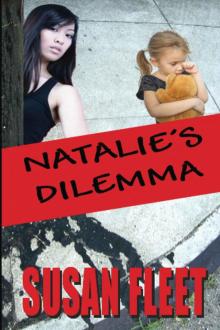 Natalie's Dilemma: a Frank Renzi crime thriller (Frank Renzi novels Book 7)
Natalie's Dilemma: a Frank Renzi crime thriller (Frank Renzi novels Book 7)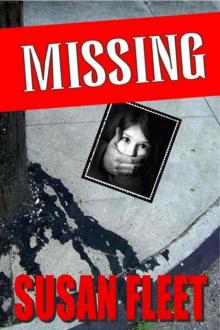 Missing, Frank Renzi Book 6
Missing, Frank Renzi Book 6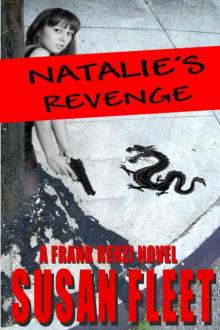 Natalie's Revenge
Natalie's Revenge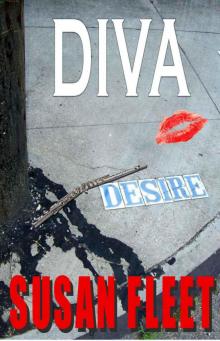 DIVA
DIVA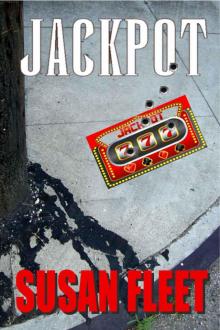 Jackpot (Frank Renzi mystery series)
Jackpot (Frank Renzi mystery series)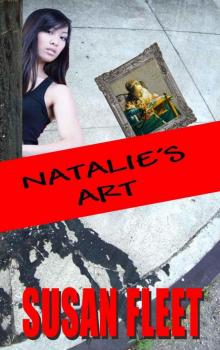 Natalie's Art: a Frank Renzi novel
Natalie's Art: a Frank Renzi novel